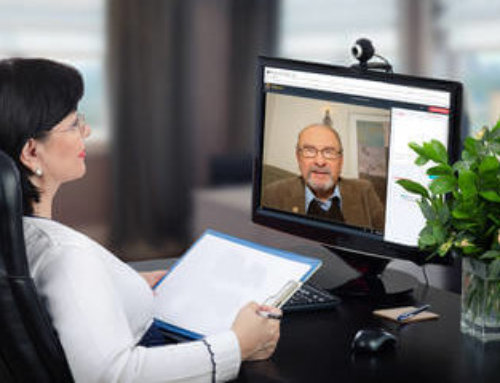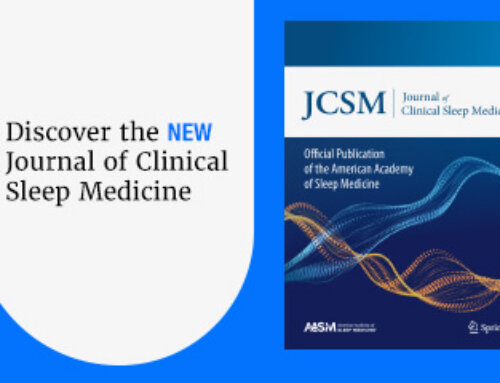The Centers for Medicare & Medicaid Services (CMS) published the 2023 Physician Fee Schedule Final Rule in November. An analysis of the rule, including key highlights specific to sleep medicine, is included below. This analysis includes updated comparison documents to help sleep clinicians understand the impact of these changes on sleep medicine, evaluation and management, and telemedicine payment.
UPDATE: On Dec. 19, the Consolidated Appropriations Act, 2023 (CAA), was finalized. This legislation provides approximately $1.7 trillion in spending and includes policies that extend beyond appropriations in many different areas. The legislation includes physician reimbursement and telehealth provisions that are especially important for sleep medicine clinicians. As a result of this legislation, the 2023 Medicare Conversion Factor (CF) has been updated to $33.8872. Additional details regarding the impact of the CAA can be found here. The AASM national payment and RVU comparison documents have been updated to reflect the new CF and are accessible via the links below.
The AASM National Payment and RVU comparison documents have been updated and are accessible via the links below.
AASM members have continuously experienced reductions in payment for sleep studies, over the last four years. This is due to several major factors:
- The Home Sleep Apnea Test (HSAT) code RUC resurvey, which took place in 2017; the revised RVUs were implemented in 2019
- The Medicare Conversion Factor, which has specifically decreased over the last two years, due to budget neutrality after changes to the office/outpatient Evaluation and Management (E/M) codes
- A CMS market research study to update the cost of supplies and equipment
The CMS update of supply and equipment costs has had a significant impact on reimbursements for sleep study codes, as the cost of one specific piece of equipment, respiratory impedance plethysmography belts, has decreased rather drastically, as a result of this update. This piece of equipment is included in direct practice expense for several sleep study codes and was originally priced at $470.00. The reduction in price has been phased-in over the last four years, as indicated in the table below.
| Original Price | Year 1 (2019) | Year 2 (2020) | Year 3 (2021) | Year 4 (2022) |
|---|---|---|---|---|
| $470.00 | $374.25 | $278.50 | $182.75 | $87.00 |
This reduction in the cost of this piece of equipment directly impacts the practice expense for the code, which contributes to the total RVU (along with physician work and professional liability RVUs). Codes impacted by this cost reduction include 95806, 95807, 95808, 95810, and 95810.
Clinical labor pricing was not updated during the supply and equipment pricing transition from 2019 to 2022. CMS subsequently proposed an update to clinical labor pricing, as this data had not been updated since 2002. AASM agreed with this proposal but encouraged CMS to implement the changes gradually, as was done with the supply and equipment pricing. CMS has now finalized that the clinical labor pricing update will take place over a 4-year period, using wage data from the Bureau of Labor Statistics. The agency will continue to accept feedback on the updates throughout the 4-year transition period.
The Medicare Economic Index (MEI) is used to proportion the components of the RBRVS between work, practice expense, and professional liability insurance (PLI). In the 2023 Final Rule, CMS finalized that the proposed MEI changes will not be implemented in 2023, referencing the need for continued public comment, due to the potentially significant impact to physician payments. CMS also shared that the agency will consider the results of the AMA practice expense data collection effort to the data used in their new MEI calculation.
Geographic Practice Cost Indices will reflect the following data in 2023:
- Physician work GPCIs –2017-2020 Bureau of Labor Statistics (BLS) Occupational Employment Statistics (OES) wage data
- Practice Expense (PE) GPCIs –2015-2019 American Community Survey (ACS) data
- Professional Liability Insurance (PLI) GPCIs – 2020 state insurer rate filing data
CMS finalized implementation of 80 percent of the AMA/Specialty Society RVS Update Committee’s (RUC) work value recommendations and nearly all the RUC’s direct practice expenses (PE) cost recommendations for 2023. CMS will also continue implementing the increases to clinical staff wage rates in 2023. Some physician services with more expensive supplies and/or equipment may be impacted by these increases due to budget neutrality.
Energy Based Repair of Nasal Valve Collapse
The AASM supported the CMS proposal to accept the RUC recommended work RVU for code 30468 (Repair of nasal valve collapse with subcutaneous/submucosal lateral wall implant(s)), at 2.80, which has now been finalized by CMS for implementation in 2023. CMS also finalized the RUC recommended direct Practice Expense inputs for 30468, without refinement. However, we opposed the CMS proposed work RVU for 30469 (Repair of nasal valve collapse with low energy, temperature-controlled (i.e., radiofrequency) subcutaneous/submucosal remodeling), previously reported as an unlisted code. Per CMS, the RUC should have used a different code as the crosswalk for 30469, which they selected from a range of codes with the same intra-service time and similar total time. Therefore, CMS finalized the work RVU value of 2.44 and the direct PE inputs without refinement, as proposed.
| Code | Long Descriptor | RUC Recommended RVU | CMS Finalized Work RVU |
|---|---|---|---|
| 30468 | Repair of nasal valve collapse with subcutaneous/submucosal lateral wall implant(s) | 2.80 | 2.80 |
| 30469 | Repair of nasal valve collapse with low energy, temperature-controlled (i.e., radiofrequency) subcutaneous/submucosal remodeling | 2.70 | 2.44 |
Drug Induced Sleep Endoscopy
CMS proposed a work RVU significantly below the RUC recommended value for the Drug Induced Sleep Endoscopy CPT code 42975 (Drug-induced sleep endoscopy, with dynamic evaluation of velum, pharynx, tongue base, and larynx for evaluation of sleep-disordered breathing, flexible, diagnostic). The RUC recommended a value of 1.95, while CMS proposed a value of 1.58. Upon review of the proposed rule comments, CMS reiterated that their proposed work RVU is supported by their selected reference codes with similar intra-service and total time, and maintains that the similarities in these codes, coupled with the use of the total time ratio calculation justify the work RVU they initially proposed. The work RVU was, therefore, finalized at 1.58.
| Code | Long Descriptor | RUC recommended RVU | CMS Finalized Work RVU |
|---|---|---|---|
| 42975 | Drug induced sleep endoscopy, with dynamic evaluation of velum, pharynx, tongue base, and larynx for evaluation of sleep disordered breathing, flexible, diagnostic | 1.95 | 1.58 |
CMS has finalized adopting the revised American Medical Association CPT guidelines and the RUC recommended RVUs for several additional E/M visit code families, allowing medical decision making to be used to select the E/M visit level, consistent with the way office/outpatient office visits are billed. The additional E/M visit code families include the following:
- Hospital visits
- Emergency department visits
- Home visits
- Nursing facility visits
CMS has also created two additional Medicare-specific G codes, for Other E/M prolonged services.
| Code | Long Descriptor |
|---|---|
| G0317 | Prolonged nursing facility evaluation and management service(s) beyond the total time for the primary service (when the primary service has been selected using time on the date of the primary service); each additional 15 minutes by the physician or qualified healthcare professional, with or without direct patient contact |
| G0318 | Prolonged home or residence evaluation and management service(s) beyond the total time for the primary service (when the primary service has been selected using time on the date of the primary service); each additional 15 minutes by the physician or qualified healthcare professional, with or without direct patient contact |
CMS finalized a one-year delay of its policy requiring a physician to see a patient for more than half of the total time of a split or shared E/M visit in order to bill for the service, largely due to ongoing advocacy efforts by medical societies, including the AASM, which joined 45 other medical societies in signing onto a letter from the AMA, in this regard. CMS will continue allowing physicians and qualified health care professionals to use history, physical exam, medical decision making (MDM), or more than half of the total time spent with a patient to determine the substantive portion of the split/shared visit in calendar year 2023. We anticipate more information in the Physician Fee Schedule proposed rule for 2024.
AASM has continued to advocate for CMS to make the telehealth coverage permanent, since the addition of many services to the telehealth list, due to the COVID-19 public health emergency. While CMS has not finalized making telehealth coverage permanent, as requested, the agency has instead finalized a proposal to extend telehealth coverage for an additional five months beyond the end of the public health emergency for all codes that will be on the telehealth list. CMS also finalized maintaining the same payment rates for office visits provided in-person or via telehealth through the end of 2023 instead of reducing payments for telehealth visits to the facility rates.
Telephone E/M Services
Despite advocacy from several medical organizations, including AASM, urging CMS to permanently add Telephone (audio only) E/M services (99441 – 99443) to the telehealth services list, CMS finalized their decision not to add these services to the Medicare Telehealth Services List. However, the agency noted that these codes will be reverted back to bundled status after the expiration of the 151-day period following the end of the public health emergency.
Emotional/Behavior Assessment Psychological or Neuropsychological Testing and Evaluation Services
AASM encouraged CMS to permanently add the emotional/behavior assessment psychological or neuropsychological testing and evaluation services codes (97151-97158, 0362T, and 0373T) to the Telehealth Services list. CMS has instead decided to add these codes to the Medicare Telehealth Services List on a Category 3 basis, to allow for the collection and evaluation of data that could potentially support permanent inclusion on the Medicare Telehealth Services List. The agency will evaluate the data in the future, before making a final decision regarding these codes.
Use of Modifiers for Medicare Telehealth Services Following the End of the COVID-19 Public Health Emergency
CMS finalized that Practitioners can continue to bill with modifier 95 along with the POS code corresponding to where the service would have been furnished in-person through the later of the end of the year in which the public health emergency ends or CY 2023. All services furnished in a facility as an originating site, POS 02 may be used, and the corresponding facility fee can be billed, per pre-public health emergency policy, beginning the 152nd day after the end of the public health emergency. Additionally, effective January 1, 2023, CPT modifier 93 will be able to be added, as appropriate, for services furnished using audio-only communications technology. All providers must append Medicare modifier FQ (Medicare telehealth service was furnished using audio-only communication technology) for allowable audio-only services furnished in those settings. However, CMS is also finalizing a requirement that all providers use modifier 93 when billing for eligible mental health services furnished via audio-only telecommunications technology. Providers have the option to use the FQ or 93 modifiers or both where appropriate and true, since they are identical in meaning. Supervising will continue to be required to append the FR modifier on any applicable telehealth claim when they provide direct supervision for a service using virtual presence through real-time, audio and video telecommunications technology. CMS is also finalizing that, for Medicare telehealth services, the agency will continue to maintain payment at the POS had the service been furnished in-person, and this will allow payments to continue to be made at the non-facility-based rate for Medicare telehealth services through the latter of the end of CY 2023 or the end of the calendar year in which the public health emergency ends.
Expiration of Public Health Emergency Flexibilities for Direct Supervision Requirements
CMS is reviewing their current temporary policy to permit immediate availability for purposes of direct supervision through the virtual presence of the billing clinician, which was adopted to address the circumstances of the public health emergency for COVID-19. While AASM advocated for the public health emergency flexibilities to be made permanent with the exception of high-risk patients, the AASM is encouraged by CMS allowing additional time to collect information and evidence for direct supervision through virtual presence to gain a better understanding of the potential circumstances in which this flexibility could be appropriate permanently, outside of the public health emergency for COVID-19. CMS will revisit at a later date.
Proposed Revisions to the “Incident to” Physicians’ Services Regulation for Behavioral Health Services
CMS noted that several types of behavioral health services would be eligible to be furnished by auxiliary personnel under the general supervision of a physician or certain other nonphysician practitioners who are authorized under their statutory benefit category to have integral, although incidental, services provided incident to their own professional services. Services could include, but are not limited to services such as Psychotherapy, Screening, Brief Intervention, and Referral to Treatment (SBIRT) services, psychiatric diagnostic evaluations, and other services furnished primarily for the treatment or diagnosis of mental health or SUD disorders. CMS has finalized the proposal to add an exception to the direct supervision requirement under the “incident to” regulation to allow behavioral health services to be provided under the general supervision of a physician or non-physician practitioner (NPP), rather than under direct supervision, when these services or supplies are furnished by auxiliary personnel.
New Coding and Payment for General Behavioral Health Integration (BHI) billed by Clinical Psychologists (CPs) and Clinical Social Workers (CSWs)
Due to support from AASM and other specialty societies, CMS is finalizing the new behavioral health integration code, as proposed, and is no longer using the placeholder code GBHI1. The final code number will be G0323 (Care management services for behavioral health conditions, at least 20 minutes of clinical psychologist or clinical social worker time, per calendar month. (These services include the following required elements: Initial assessment or follow-up monitoring, including the use of applicable validated rating scales; behavioral health care planning in relation to behavioral/psychiatric health problems, including revision for patients who are not progressing or whose status changes; facilitating and coordinating treatment such as psychotherapy, coordination with and/or referral to physicians and practitioners who are authorized by Medicare to prescribe medications and furnish E/M services, counseling and/or psychiatric consultation; and continuity of care with a designated member of the care team.)) CMS is also finalizing the proposal to add HCPCS code G0323 to the list of designated care management services for which the agency allows general supervision. CMS also recommends that Clinical Psychologists and Clinical Social Workers bill 90791 as the initiating visit, since these providers are unable to bill E/M services.
In this year’s proposed rule, as a means of increasing beneficiary access to Remote Therapeutic Monitoring (RTM) services and to more clearly define the services of RTM for qualified nonphysician healthcare practitioners whose Medicare benefit category does not include services provided incident to their own services, CMS proposed to create two new codes that would expressly facilitate RTM services furnished by qualified nonphysician healthcare professionals who cannot bill under Medicare Part B for services furnished incident to their professional services. CMS also proposed to create two HCPCS G codes, one base code and one add-on code, that include clinical labor activities (that is, incident to services such as communicating with the patient, resolving technology concerns, reviewing data, updating and modifying care plans, and addressing lack of patient improvement) that can be furnished by auxiliary personnel under general supervision. The four codes were proposed as follows:
| Code | Long Descriptor |
|---|---|
| GRTM1 | Remote therapeutic monitoring treatment management services, physician or NPP professional time over a calendar month requiring at least one interactive communication with the patient/caregiver during the calendar month; first 20 minutes of evaluation and management services |
| GRTM2 | Remote therapeutic monitoring treatment management services, physician or NPP professional time over a calendar month requiring at least one interactive communication with the patient/caregiver over a calendar month; each additional 20 minutes of evaluation and management services during the calendar month |
| GRTM3 | Remote therapeutic monitoring treatment assessment services, first 20 minutes furnished personally/directly by a nonphysician qualified health care professional over a calendar month requiring at least one interactive communication with the patient/caregiver during the month |
| GRTM4 | Remote therapeutic monitoring treatment assessment services, additional 20 minutes furnished personally/directly by a nonphysician qualified health care professional over a calendar month requiring at least one interactive communication with the patient/caregiver during the calendar month |
- GRTM4 ((List separately in addition to code for primary procedure))
AASM opposed the establishment of these codes, as presented in the proposed rule, and CMS ultimately decided not to finalize the codes. CMS, instead, agreed to allow for general supervision when physicians and other qualified health care professionals use the RTM treatment management services.
CMS finalized the removal of NCD 160.22 Ambulatory EEG Monitoring. The agency decided that it would be best to allow local contractor discretion for coverage decisions in this regard.
Questions about the physician fee schedule final rule can be sent to AASM staff at coding@aasm.org. The analysis of the Quality Payment Program final rule will be posted separately.





